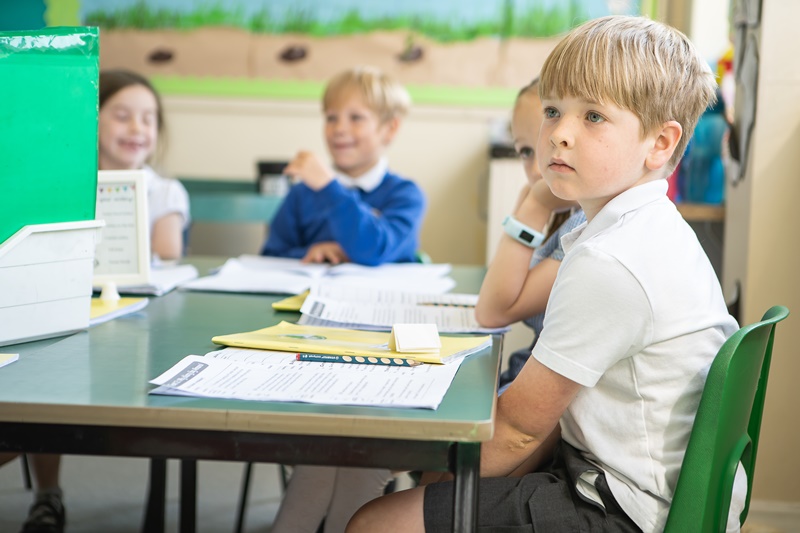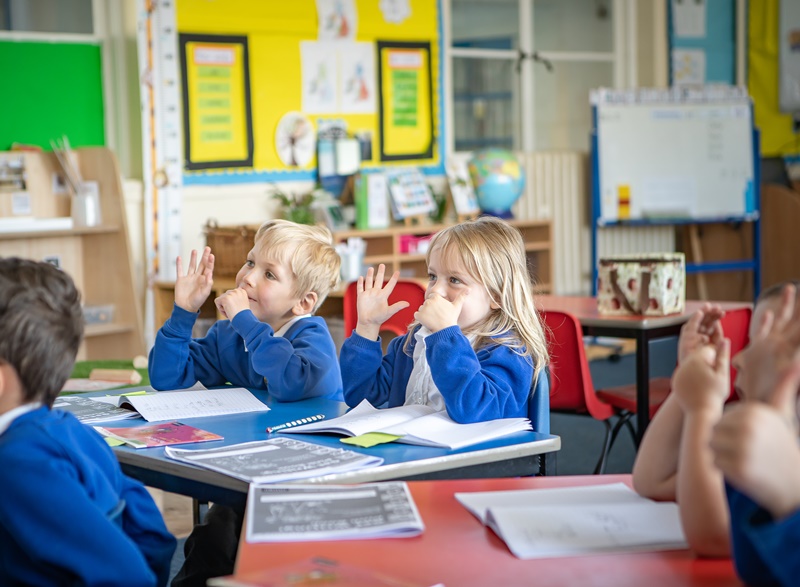Science
Through Science at Whipton Barton Federation, we aim to give all our children an understanding of the world around them from the moment they join us. When children are studying Science at the primary level, they should be acquiring specific skills and knowledge to help them to think scientifically, to gain an understanding of scientific processes and also an understanding of the uses and implications of Science, today and for the future. This learning is built on each year.
At Whipton Barton Federation, scientific enquiry skills are embedded in each Science unit the children study with the aim of helping them to answer questions about the world around them. These topics are revisited and developed throughout their time with us. Please see the examples below to show you how these build up throughout the primary.
Children are natural scientists and throughout their Reception year, children are exposed to core scientific principles as they are encouraged to question the world around them and talk about the observations they make. For example, children are exposed to problems like, “Which materials would be good for bear to wear if he went splashing in the rain?” The activity encourages children to think in a scientific way – what are we trying to find out? What shall we do to do to test the materials? Which materials do you think would be good/bad? Explain your thoughts on that? How can we make sure the test is fair? What did we find out? Introducing them to the principles of a simple test from an early age ensure that children learn to develop the skills of observations, predictions, critical thinking and discussion. In the Early Years, the desire to explore and investigate is fostered through continuous provision and adult-led activities, with area such as exploration or interest trays set up in the environment. The Early Years curriculum is planned to ensure that children are exposed to a variety of science topics which include: classification of different animals, growing plants from seeds, life cycles of plants and animals (observing in real time the life cycle of a butterfly and a frog), seasons and changing states of matter. Science is both taught during continuous provision and topic time, but it is also integrated into most ‘Talk Through Stories’ texts that we teach. An example of this would be during our Superhero topic when we read the book ‘Supertato: The Return of Evil Pea’. In this story, Evil Pea escapes from the freezer and freezes the whole of the supermarket. Throughout the week of reading this book, activities around the classroom include finding out the quickest way to melt ice, investigating where in the classroom is the best place for the ice to melt and thinking about how we can break the ice. Using the story also offers opportunities to discuss some of the illustrations in the book such as, ‘Why are the red chillies rubbing themselves onto the ice? – a great response from a child at this point was, “Because chillies are hot and hot things melt ice”. The scientific experiences that the children encounter throughout their Reception year excellently prepare them to become future scientists as they progress onto the next stage of their education in KS1.

In Year 1, children will begin to ask simple questions and recognise that they can be answered in a variety of ways. To develop our Working Scientifically skills we will observe the world around us closely, using simple equipment where appropriate and will start to think about how we could identify and classify the objects that we come across. Children will also look at: identifying wild plants and describing the basic structure of a variety of common plants, identifying the 5 main groups of organisms, define carnivores, herbivores and omnivores, label the human body, look at everyday materials and observe the changing seasons throughout the year.
In Year 2, children will develop their ‘Working Scientifically’ skills through using their observation and ideas to suggest answers to questions and gathering and recording data to help in answering questions. Children will also look at: explores the differences between things that are living, dead and those that have never been alive, identify habitats, look at simple food chains, describe what plants need to thrive, find out about the basic needs of animals and compare the suitability of everyday materials.
In Year 3, children pupils will be ‘Working Scientifically’ through asking relevant questions, setting up simple practical enquiries, making systematic and careful observations, recording findings and using results to draw simple conclusions. Children will also: identify and describe the function os plants, investigate the way in which water is transported in plants, identify the needs and structures of animals, compare and group together rock and soil types, explore light and shadows and look into the effect of forces.
In Year 4, children will look at ‘Working Scientifically’ through comparative and fair testing, using simple scientific language, drawings and charts, report findings from enquiries, using results to make predictions whilst suggesting improvements and raise further questions and use straightforward scientific evidence to answer questions to support their findings. Children will also: recognise living things can be grouped in a variety of ways, use classification keys, describe the functions of the human body, identify food chains, identify how sounds are made and investigate electricity.
In Year 5, children will engage in ‘Work Scientifically’ through planning different types of scientific enquiries, taking measurements, recording data and results, using test results to make predictions and identifying scientific evidence that has been used to support or refute ideas or arguments. Children will also: describe life cycles, group together everyday materials, demonstrate the changes of materials, begin learning about Earth and Space and investigate how to increase the effects of forces.

In Year 6, children will ‘Work Scientifically’ by recognising and controlling variables, increase the accuracy and precision of taking measurements, record results with increasing complexity, make predictions to set up further comparative and fair tests and report and present findings. Children will also: describe how living things are classified, identify human needs and the impact of diet, exercise drugs and lifestyles, recognise that livings things change over time, identify how animals are adapted to suit environments, explore light and investigate electricity with increased complexity.
All children are encouraged to develop and use a range of skills including observations, planning and investigations. Specialist vocabulary for topics is taught and built up, and effective questioning to communicate ideas is encouraged. Concepts taught should be reinforced by focusing on the key features of scientific enquiry, so that pupils learn to use a variety of approaches to answer relevant scientific questions. We are developing the following types of scientific enquiry at Whipton Barton Federation: observing over time; pattern seeking; identifying, classifying and grouping; comparative and fair testing (controlled investigations); and researching using secondary sources. We aim, through our teaching, for our children to develop an interest and enthusiasm for Science.
